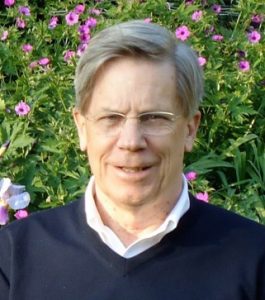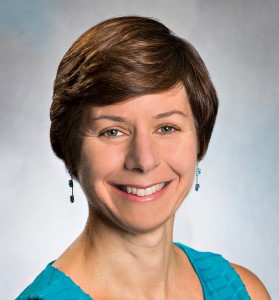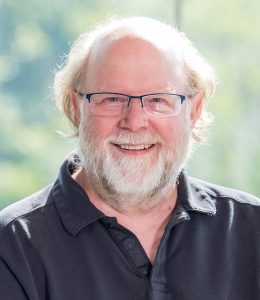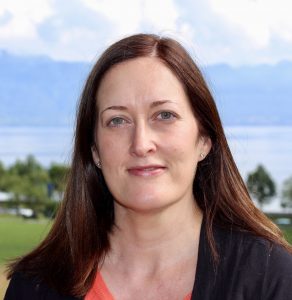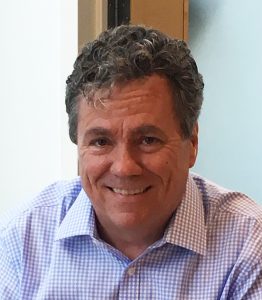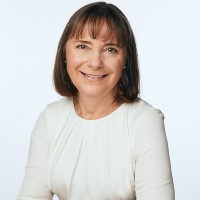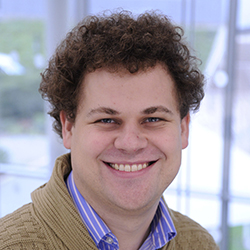Professor Douglas Fearon,
Cold Spring Harbor Laboratory
In the past, the Fearon lab had made contributions to our understanding of innate immunity, B cell signal transduction, and memory T cells. Since 2010, its focus has been on cancer immunology, with studies of three important aspects of pancreatic cancer: the mechanism of immune suppression that allows this cancer to escape control by the immune system; cachexia, the devastating metabolic condition that often affects patients with pancreatic cancer; and latent metastatic disease, which is the ultimate reason for the failure of pancreatectomy to cure patients of this disease. These contributions, although at a pre-clinical level, have the potential to improve the care of patients with pancreatic cancer, as is exemplified by the on-going early phase clinical trial of a new immunotherapy for this disease, which is being led by Professor Duncan Jodrell at the Cancer Research UK Cambridge Institute and Addenbrooke’s Hospital.
Professor Elaine Fuchs,
The Rockefeller University
Elaine Fuchs is renowned for her research in skin biology, its stem cells and associated genetic disorders, particularly cancers. She received her Ph.D. in Biochemistry from Princeton. After postdoctoral research at MIT, she joined the faculty at University of Chicago. In 2002, she relocated to Rockefeller University, where she is the Rebecca C. Lancefield professor of Mammalian Cell Biology and Development. Fuchs has been an Investigator of the Howard Hughes Medical Institute since 1988. Her latest work focuses on cancer (tumour-initiating) stem cells of squamous cell carcinomas, one of the most common and life-threatening cancers for which therapeutics are limited. Her science dissects how tumour stem cells form, survive and respond to ever-changing and stressful microenvironments.
Dr Daphne Haas-Kogan,
Dana-Farber Cancer Institute / Harvard Cancer Center
Daphne Haas-Kogan, MD, MBA, FASTRO, FACR is the Chair of the Department of Radiation Oncology at Dana-Farber Cancer Institute, Brigham and Women’s Hospital, and Boston Children’s Hospital. She is the Willem and Corrie Hees Family Professor of Radiation Oncology at Harvard Medical School. Her laboratory research has focused on characterising aberrant signaling pathways in brain tumours and pediatric cancers and investigating agents that target these signaling cascades.In 2016, Dr Haas-Kogan was appointed to the Blue Ribbon Panel of scientific experts, cancer leaders, and patient advocates to inform scientific directions and goals at NCI of Vice President Joe Biden’s National Cancer Moonshot Initiative.
Professor Ed Harlow,
Harvard Medical School
Ed Harlow and his laboratory study the mechanisms that underlie the early stages of cancer development. He is best known for advances in our understanding of how cells determine when it is appropriate to divide and how these regulatory events are lost during the development of cancer. In 1988, his lab discovered how some viruses alter cell proliferation by producing proteins that interact with and inactivate negative regulators of proliferation. Loss of these “brakes” on proliferation leads to cell division at inappropriate times. This model is widely applicable to cancer, and the discovery of how these viruses subvert cell regulation led to major advances in our knowledge of how cells control cell division.
Professor Peter Jones,
Van Andel Research Institute
Peter Jones became Chief Scientific Officer of Van Andel Research Institute (VARI) in Grand Rapids, Michigan in 2014. His laboratory discovered the effects of 5-azacytidine on cytosine methylation and first established the link between DNA methylation, gene expression and differentiation. He helped pioneer the field of epigenetics, particularly its role in cancer, and helped develop novel therapies for cancer. Peter Jones has published more than 300 scientific papers and received several honours. He is a past President of the American Association for Cancer Research and was elected a Fellow of the AAAS in 2009 and a Fellow of the Academy of the AACR in 2013. He was elected a member of the National Academy of Sciences in 2016 and the American Academy of Arts and Sciences in 2017.
Professor Johanna Joyce,
University of Lausanne
Johanna Joyce’s laboratory investigates the microenvironment in which a tumour arises and the critical influence that non-cancerous immune and stromal cells can have on tumour progression and metastasis. They have uncovered regulatory signals provided by the normal tissue stroma and immune cells to the cancer cells, and determined how normal cells can be modified by the cancer cells to produce a variety of factors that enhance tumour malignancy. Her group is also actively exploring the mechanisms underlying the contribution of the tumour microenvironment to therapeutic resistance. Their ultimate goal is to apply this collective knowledge to the clinic and develop targeted therapies that disrupt critical tumour-stromal interactions. Her lab continues to explore the complexity of the tumour microenvironment, with an increasing emphasis on developing novel strategies for treating brain malignancies.
Dr Scott Lowe,
Memorial Sloan Kettering Cancer Centre
Scott Lowe initiated his independent research at Cold Spring Harbor Laboratory, where his group make important contributions to our understanding of the p53 tumour suppressor network, as well as the processes of multi-step carcinogenesis, cellular senescence, and tumour-cell drug resistance. At MSKCC, his laboratory applies mouse models, functional genomics and cancer genomics in a coordinated effort to identify cancer drivers and dependencies. These efforts have revealed fundamental insights into cancer mechanisms and identified potential therapeutic targets.
Prof Karen Vousden,
Francis Crick Institute
Karen Vousden received her PhD from the University of London and following postdoctoral fellowships at the ICR and NCI, she led research groups at the Ludwig Institute and the NCI. After serving as Director of the CRUK Beatson Institute in Glasgow, she became a Group Leader at the Francis Crick Institute and served as Chief Scientist of CRUK until October 2022. Her research has contributed to our understanding of how the tumour suppressor protein p53 is regulated and functions to control cancer progression.
Dr John Marioni,
Genentech Research and Early Development and EMBL-EBI
John Marioni received his PhD in Computational Biology from the University of Cambridge, prior to working as a postdoc in the Department of Human Genetics at the University of Chicago. He started his own research group at the European Bioinformatics Institute (EMBL-EBI) in 2010, becoming Head of Research in 2021. He is Senior Vice President and Head of Computational Sciences at Genentech Research and Early Development (gRED) based in San Francisco, USA. He remains a visiting group leader at EMBL-EBI and also at the CRUK Cambridge Institute, where he was a Senior Group Leader between 2015 and 2022.













